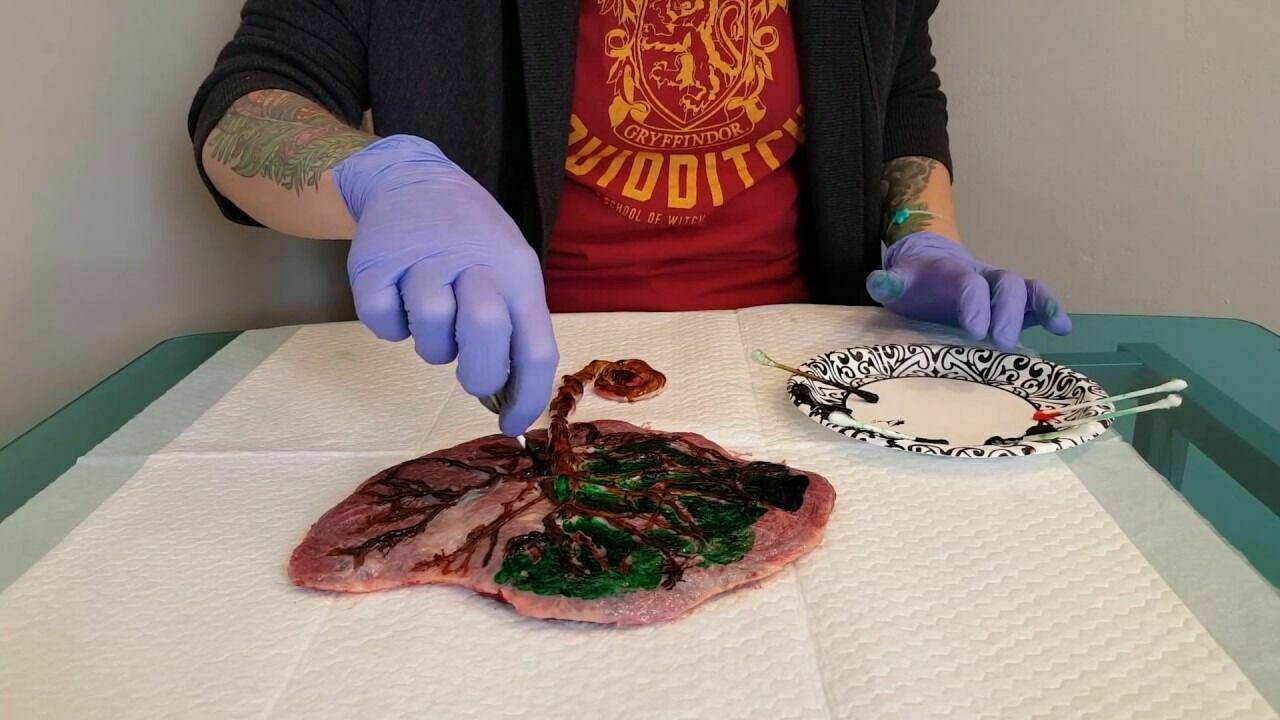Posted 29 марта 2023, 13:35
Published 29 марта 2023, 13:35
Modified 29 марта 2023, 15:09
Updated 29 марта 2023, 15:09

There is no immunity "against everything": the expert explained why eating placenta is useless
As Novye Izvestia has already reported, Dmitry Zhulin, the founder of the SberMarket delivery service, found himself in intensive care after he and his 22-year-old girlfriend took a dangerous drug to increase immunity and rejuvenation. The girl herself died. According to preliminary information, both took the drug "Laennek", which contains an extract from the human placenta, without a doctor's appointment.
The famous Russian biologist and scientific journalist Irina Yakutenko recorded a video dedicated to this terrible story. The fact is that the deceased girl turned out to be also a student of the Medical Institute. Sechenova, and at the same time was a coach of a Healthy lifestyle.
The rotten elixir of life
As a result of the investigation of this incident, it became known that the girl kept the prepared drug for several days, and died, obviously, from the fact that it deteriorated. However, the problem of the practice of injecting yourself with placenta extract or even eating it has not gone away, Yakutenko is sure.
In this news about a ridiculous death, according to the expert, a lot of things are intertwined. This is the belief in "immunostimulants", and the love of droppers, and the belief that everything natural is useful, "not like your chemistry." These behavioral features are inherent in many, so the Moscow tragedy may not be the last.
"Let's start with the drug. Placenta extract "Laennek" is produced by the Japanese company JAPAN BIO PRODUCTS, Co. Ltd. And it is registered by the Ministry of Health of the Russian Federation in the categories of drugs for the treatment of liver diseases and immunostimulants. The second should immediately be alarming, because the consensus of modern science is unambiguous: there are no drugs that could stimulate the immune system "in general". In principle, vaccines are most suitable for the definition of an immunostimulator, although not in general, but in individual areas of the immune system, but usually people who believe in immunostimulators are just anti-vaccinators.
The triumph of magical consciousness
Chronic recurrent herpes, atopic dermatitis and chronic liver diseases are indicated as indications for the use of the drug. Therefore, the couple initially used the drug off-label, that is, not according to indications. Which, of course, is very bad, but not surprising. Placenta–based drugs are a very popular thing. They have been used in Asia for a very long time, but for several decades now, the passion for eating placenta and its components has come to the West.
Faith in the power of the placenta is boundless: it is an immunostimulator, a source of vitamins and hormones, a means to get rid of postpartum depression, and a connection with the wisdom of nature. And this is a classic demonstration of magical thinking. The placenta is a temporary organ necessary to maintain the vital activity of the fetus, but, apparently, the miracle of birth is so impressive ... um, overly impressionable people that they transfer this amazement to the material proof of the miracle – the placenta. Typical contact magic.
Previously, the placenta was mostly eaten, but now it is often dehydrated, then diluted and poured into capsules that are injected subcutaneously or intravenously. There is no serious standardization in production. And this alone should alarm anyone who has at least heard something about critical thinking. In the production of "traditional" medicines, companies spend years and billions of dollars to check how the active ingredient works, in what dosages, in what form, how it interacts with other drugs, etc. And most often we are talking about one or two active substances.
It is also heated!
There are hundreds of substances in the placenta extract that can potentially have some effect. And each woman's content is different. If medicines were checked the way placenta preparations are checked, all employees of pharmaceutical companies would have been in prison for a long time. Because each batch would have a different action, and one of the affected patients would definitely sue the manufacturers. But by the way, the placenta is usually warmed up before use, so there are almost no hormones and vitamins that lovers of this organ are chasing after.
Usually, anything like extracts, extracts and other things is registered not as a medicine, but as a dietary supplement. But sometimes it still gets into medicines – sometimes because of the lack of strict standards and the venality of officials, sometimes because of the so-called traditions.
There is no serious evidence of the effectiveness of placenta extract. But this does not stop her fans in any way. Because placenta preparations have excellent PR for their audience, pressing all the right buttons: here is "everything natural", and the mystery and wisdom of maintaining life, and even an injection that is perceived as a kind of serious – that is, read, by definition effective – effect.
And although in this case the tragedy, apparently, was the result of a gross violation of the technique of handling the drug, cases of infection when using placenta extract are also described. It remains to be hoped that they will stop some of the potential recipients of this practice. But, alas, this hope is weak..."